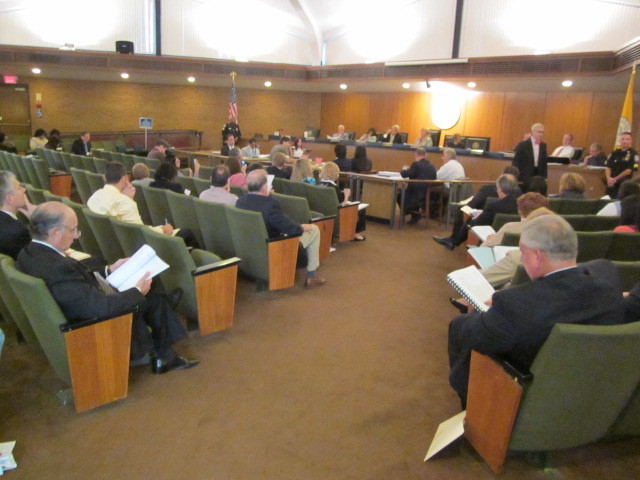Hempstead animal shelter to receive state audit
To the excitement of hundreds of residents and local animal rights advocates who have been complaining for months that the Town of Hempstead’s Animal Shelter is in dire need of financial monitoring, State Comptroller Thomas DiNapoli announced on Oct. 24 that his office will audit the financial operations of the facility. The audit — which DiNapoli said is in response to hundreds of complaints from residents and intends to ensure the shelter’s “integrity of financial accountability" — will begin within the next two weeks.
Nassau County District Attorney Kathleen Rice, who has been conducting her own investigation since 2010, requested the state audit. DiNapoli’s office sent an audit engagement letter to town Supervisor Kate Murray last week.
“This audit is essential to ensure that taxpayer dollars are being properly spent on the care and well-being of the animals at the Hempstead town shelter,” Rice said. “I want to thank Comptroller DiNapoli for his commitment to protecting the taxpayers.”
The shelter’s current budget is nearly $7.1 million, and will increase to $7.45 million — a 13.7 percent increase — under the town’s 2012 proposed budget.
At public hearings about the town’s 2012 budget held on Oct. 4 and Oct. 11, several local residents raised questions about the changes to the town’s TOHAS budget for 2012. Among those residents were members of Hope for Hempstead, a local shelter-reform advocacy group.
While various cuts were made to the shelter’s 2012 budget, including a nearly $500,000 salary decrease due to employee retirements, the town has proposed bonding an additional $1 million for capital improvements in 2012. When Hope for Hempstead member Michele Keller, of East Meadow, asked Murray about the impetus for that increase, Murray said it was for the installation of a new air-conditioning system in the facility — currently being installed and expected to be completed by the summer of 2012, according to town spokesman Mike Deery.
Keller criticized the timing of the air-conditioning system, saying that it would have been more efficient for the town to install the system in the early spring or summer.

 44.0°,
Mostly Cloudy
44.0°,
Mostly Cloudy 




